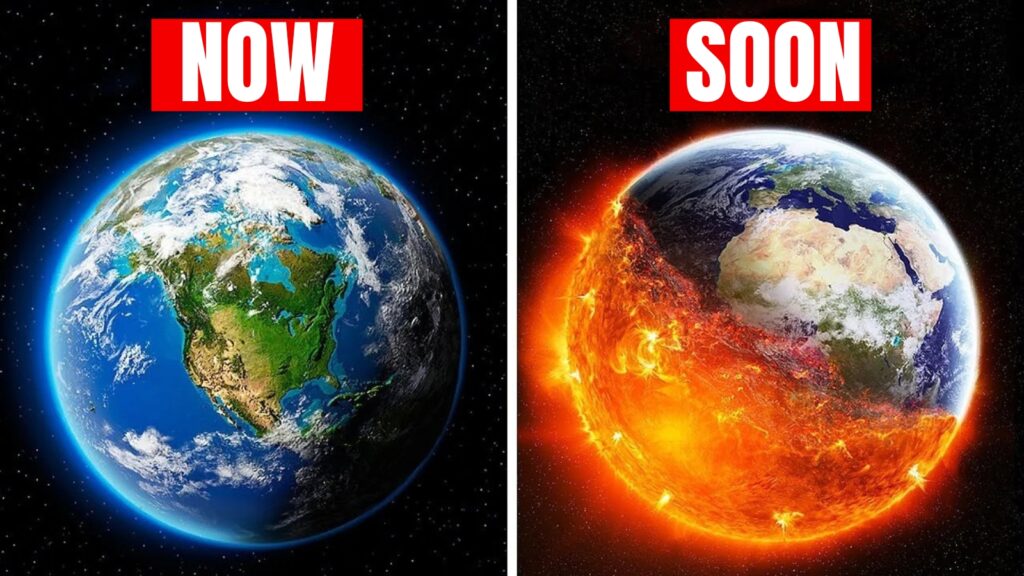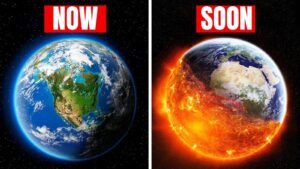The debate over global warming and climate change has reached a critical turning point as unprecedented weather events in 2024 force both scientists and skeptics to reassess their understanding of Earth’s climate system. From record-breaking hurricanes to unprecedented snowfall in desert regions, our planet’s weather patterns are exhibiting behaviors that challenge our fundamental understanding of environmental change.
At the heart of this phenomenon lies the question: what is global warming? Simply put, global warming refers to the long-term rise in Earth’s average temperature, a process primarily driven by greenhouse gases trapping heat in the atmosphere. This mechanism, known as the greenhouse effect, is actually a natural process essential for life on Earth. Like a greenhouse that retains warmth for plants, certain atmospheric gases trap heat from the sun, maintaining our planet’s habitable temperature. However, human activities since the Industrial Revolution have significantly intensified this natural process, leading to unprecedented changes in global climate patterns.
Understanding greenhouse gases is crucial to grasping the complexity of these changes. These atmospheric compounds include carbon dioxide, primarily released through the burning of fossil fuels; methane, which emanates from agricultural practices and waste decomposition; and water vapor, the most abundant greenhouse gas in our atmosphere. Additional contributors include nitrous oxide from agricultural and industrial activities, and synthetic compounds like chlorofluorocarbons used in refrigeration and aerosols. Together, these gases form a complex web of interactions that influence our planet’s temperature regulation system, and their increasing concentrations in our atmosphere have become a matter of urgent scientific and public concern.
As extreme weather events continue to make headlines worldwide, these fundamental concepts of global warming, the greenhouse effect, and atmospheric chemistry have moved from abstract scientific theories to tangible phenomena affecting communities across the globe. The effects of this warming trend have become impossible to ignore, prompting a renewed focus on understanding and addressing these environmental challenges. Watch our comprehensive documentary below or read further:
The Year That Changed Everything: 2024’s Climate Catastrophes
The 2024 Atlantic hurricane season has emerged as a watershed moment in the ongoing climate change debate. With damages totaling an astronomical $500 billion, this year’s hurricane season has become a stark reminder of what global warming effects might mean for our future. Hurricane Helen, the season’s most devastating storm, unleashed 42 trillion gallons of rain – equivalent to nearly two years of Niagara Falls’ flow – causing $250 billion in damages and claiming over 100 lives.
The greenhouse effect, long understood as a natural phenomenon that keeps our planet habitable, appears to be intensifying. Scientists point to rising carbon dioxide levels, which have surged from 280 parts per million in 1850 to an alarming 420 parts per million today – the highest concentration in 800,000 years. This dramatic increase in greenhouse gases has contributed to a 1.1°C rise in global temperatures since pre-industrial times.
Beyond Hurricanes: The Global Impact of Climate Change
Climate change effects are manifesting worldwide in increasingly dramatic ways. In Saudi Arabia, a region known for its scorching deserts, residents witnessed an extraordinary sight: snow blanketing the dunes. Meanwhile, cities from Phoenix to Paris endured record-breaking heat waves during summer 2023, and Libya faced catastrophic flooding that claimed thousands of lives.
Environmental scientists warn that these extreme weather events are just the beginning. Projections suggest that by 2100, rising seas could displace up to 200 million people, creating one of the largest migration crises in human history. Coastal cities like Miami and Jakarta are already battling rising tides and storm surges, while island nations like the Maldives face existential threats from rising sea levels.
The Skeptics’ Perspective: Is Global Warming a Scam?
However, climate skeptics present compelling counterarguments to the prevailing narrative. They argue that what we’re witnessing might be part of Earth’s natural climate cycles. A global warming essay published by leading skeptics points out that Earth has experienced significant climate variations throughout its history, including the Medieval Warm Period (950-1258) and the Little Ice Age (14th-19th centuries).
Critics of current climate change policies highlight how the environmental crisis has spawned a trillion-dollar industry. Carbon pricing and pollution pricing mechanisms, including Canada’s carbon rebate program, face scrutiny from those who question whether these economic measures truly address the underlying environmental concerns.
The Science Behind the Controversy
The physics of climate change remains a subject of intense debate. While mainstream science emphasizes the role of human-produced greenhouse gases in driving global warming potential, skeptics argue that water vapor, the most abundant greenhouse gas, has a far greater impact on atmospheric heat retention than carbon dioxide.
What are greenhouse gases really doing to our planet? The answer might be more complex than initially thought. Some researchers suggest that temperature increases might actually lead to higher carbon dioxide levels, rather than the other way around, challenging conventional understanding of the greenhouse effect.
Economic Implications and Global Priorities
The climate-plan debate extends beyond environmental concerns into economic territory. Critics argue that resources allocated to combat climate change might be better spent addressing immediate global challenges such as poverty, education, and healthcare. The tension between environmental protection and economic development has become particularly acute in developing nations.
Looking Ahead: The Stakes and Choices
Whether the current climate crisis represents a genuine emergency or an exaggerated threat, the consequences of our choices will be far-reaching. By 2050, experts predict that water scarcity alone could displace 700 million people. Urban areas face increasing challenges from extreme heat, with recent European heat waves resulting in thousands of deaths.
The Role of Scientific Discovery
Ongoing scientific discovery continues to reshape our understanding of climate dynamics. Climate models, while sophisticated, face criticism for their reliability and accuracy in predicting future scenarios. Past predictions that haven’t fully materialized have led some to question the credibility of climate science as a whole.
Conclusion: A Global Challenge Requiring Global Solutions
As we grapple with these complex issues, one thing becomes clear: the need for balanced, thoughtful discussion about our planet’s future. Whether you believe in the urgent threat of climate change or remain skeptical, the decisions we make today will shape the world for generations to come. The evidence of extreme weather events, rising sea levels, and changing climate patterns demands attention, regardless of their ultimate cause. As coastal communities face increasing threats and natural disasters become more frequent, the need for practical solutions becomes more pressing. The challenge lies in finding approaches that address both environmental concerns and human needs. This might require rethinking our current climate-plan strategies, pollution-pricing mechanisms, and carbon-pricing systems to ensure they effectively serve their intended purpose without creating undue economic hardship.
As we continue to observe and analyze these environmental changes, the importance of staying informed and engaged cannot be overstated. Whether through further scientific discovery, technological innovation, or policy reform, addressing these challenges will require global cooperation and commitment.












